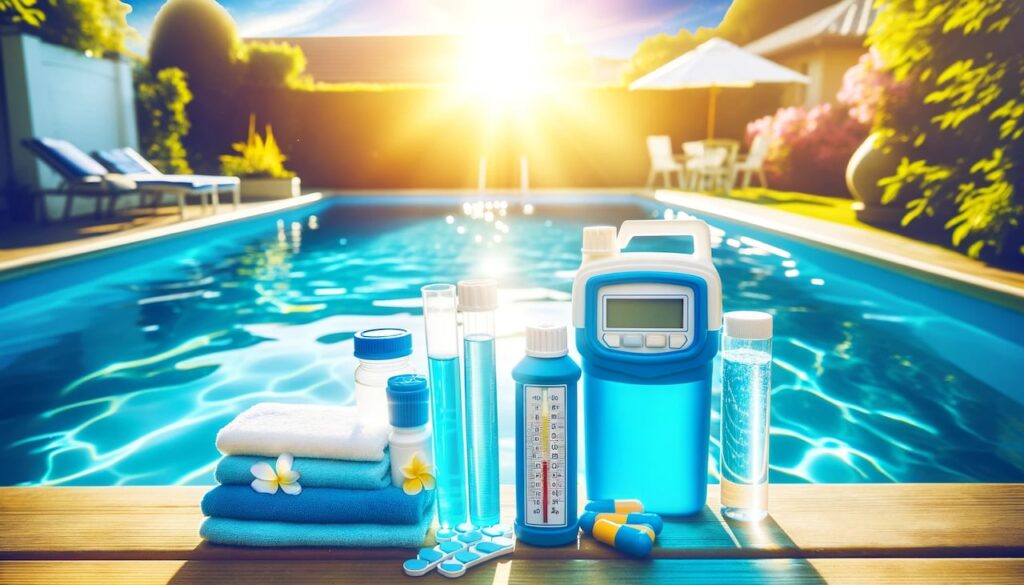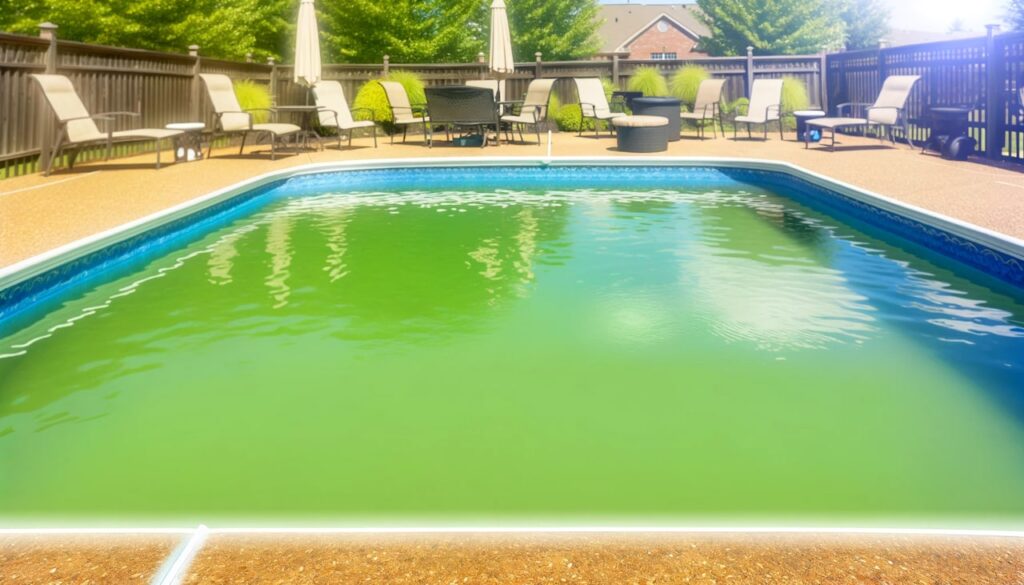Freshwater pools are an alternative to traditional chlorine or saltwater pools. Unlike saltwater pools that rely on electrolysis to generate chlorine or conventional pools that use chemical chlorine additives, freshwater pools use advanced filtration systems to maintain water purity with minimal chemical intervention. These pools are designed to offer a swimming experience that closely mimics natural bodies of water, making them appealing to those who prefer a more natural and eco-friendly swimming environment.
How Do Freshwater Pools Work?
Freshwater pools use sophisticated filtration systems, such as ozone generators, ultraviolet (UV) light, or mineral-based purification systems, to keep the water clean and free from bacteria and algae. The primary goal of a freshwater pool is to minimize or eliminate the use of synthetic chemicals while maintaining a safe and hygienic swimming environment. These systems work by:
- Using ozone or UV purification to neutralize bacteria, viruses, and other contaminants.
- Employing mineral-based filtration, such as copper and silver ionizers, to prevent algae and bacterial growth.
- Utilizing high-efficiency pool filters to remove debris and organic matter effectively.
The combination of these methods allows freshwater pools to stay clean and clear without the heavy use of chlorine, providing a gentler swimming experience for users.
Are Freshwater Pools Completely Chemical-Free?
No, freshwater pools are not entirely chemical-free. While they significantly reduce the reliance on traditional chlorine and harsh chemicals, some level of treatment is still necessary to maintain water balance and prevent bacteria or algae growth. The primary difference is that instead of relying on chlorine as the main disinfectant, freshwater pools use alternative sanitization methods, such as minerals, ozone, or UV light. These systems ensure the pool remains safe without exposing swimmers to the strong odors and potential skin irritation associated with high chlorine levels.
Are Freshwater Pools Ideal for Those With Skin Conditions?
Yes! Freshwater pools are an excellent option for individuals with sensitive skin, eczema, or other skin conditions. Traditional chlorine pools can cause dryness, irritation, and allergic reactions due to the presence of strong disinfectants. Freshwater pools, with their minimal chemical content, provide a more comfortable swimming environment that is gentler on the skin and eyes. The absence of harsh chemicals can also prevent issues like red eyes, rashes, and excessive dryness, making freshwater pools a preferred choice for individuals with skin sensitivities.

Are Freshwater Pools Eco-Friendly?
Freshwater pools are considered a more eco-friendly alternative to traditional chlorine or saltwater pools. Their minimal chemical usage reduces the impact on the environment, as fewer harmful byproducts enter the water system. Additionally, freshwater pools require less water turnover and backwashing compared to chlorine pools, leading to reduced water consumption. Using sustainable filtration methods, such as UV and ozone purification, further lowers the ecological footprint of maintaining a pool.
Read More: Saltwater Vs. Freshwater Pool – Which Is Better and Why?
Pros of Freshwater Pools
- Gentler on skin and eyes – Minimal chemicals reduce irritation and allergies.
- No strong chlorine smell – Enjoy a more natural swimming experience without harsh odors.
- Eco-friendly – Reduced chemical usage minimizes environmental impact.
- Lower maintenance costs – Advanced filtration systems require fewer chemical treatments.
- Safer for children and pets – Less exposure to harsh chemicals makes swimming safer.
Cons of Freshwater Pools
- Higher initial investment – Advanced filtration systems can be costly upfront.
- Regular monitoring required – Water balance and filter maintenance must be managed diligently.
- Not entirely chemical-free – Some chemicals may still be needed for water balance and sanitation.
- May require professional maintenance – Complex filtration systems may need expert servicing.
Call Our Pool Professionals Today!
If you’re considering installing a freshwater pool, our team of experts can help you choose the best system for your needs. Whether you’re looking for a more natural swimming experience, an eco-friendly option, or a pool that’s gentle on sensitive skin, we have the expertise to guide you through the process. Contact us today to learn more about how a freshwater pool can enhance your home and lifestyle!
Conclusion
Freshwater pools provide a natural, eco-friendly alternative to traditional chlorine and saltwater pools. With advanced filtration systems and minimal chemical use, they offer a gentle swimming experience. Swimming pool contractors can help homeowners design and install these sustainable pool systems, ensuring a healthier and more enjoyable backyard retreat. While factors like maintenance and cost should be considered, the benefits of a freshwater pool make it a highly appealing choice for many.
FAQ
Is a freshwater pool salty?
No, a freshwater pool is not salty. Unlike saltwater pools, which use salt to generate chlorine, freshwater pools rely on alternative filtration methods such as UV light, ozone, or minerals to keep the water clean without adding salt or excessive chemicals.
What is the difference between saltwater and freshwater pools?
The key difference lies in the sanitization process. Saltwater pools use dissolved salt and a chlorine generator to produce chlorine naturally, whereas freshwater pools use non-chlorine filtration methods such as ozone, UV light, or mineral-based systems to maintain water cleanliness.
Which is better: saltwater or freshwater pools?
It depends on your preferences and needs. Saltwater pools offer lower maintenance and a softer feel but still contain chlorine. Freshwater pools, on the other hand, are gentler on the skin, eco-friendly, and eliminate the strong chlorine smell. However, they may require a higher initial investment and more frequent monitoring.
Is saltwater cleaner than freshwater?
Saltwater pools continuously generate chlorine, which helps kill bacteria and algae effectively. However, freshwater pools use advanced purification technologies to maintain cleanliness without relying on chlorine, making them a healthier choice for many swimmers.
Is it easier to swim in saltwater or freshwater?
Swimming in saltwater pools is generally easier because salt increases water buoyancy, making it easier to float. Freshwater pools, which do not contain salt, provide a swimming experience more similar to natural lakes and rivers, requiring slightly more effort to stay afloat.



